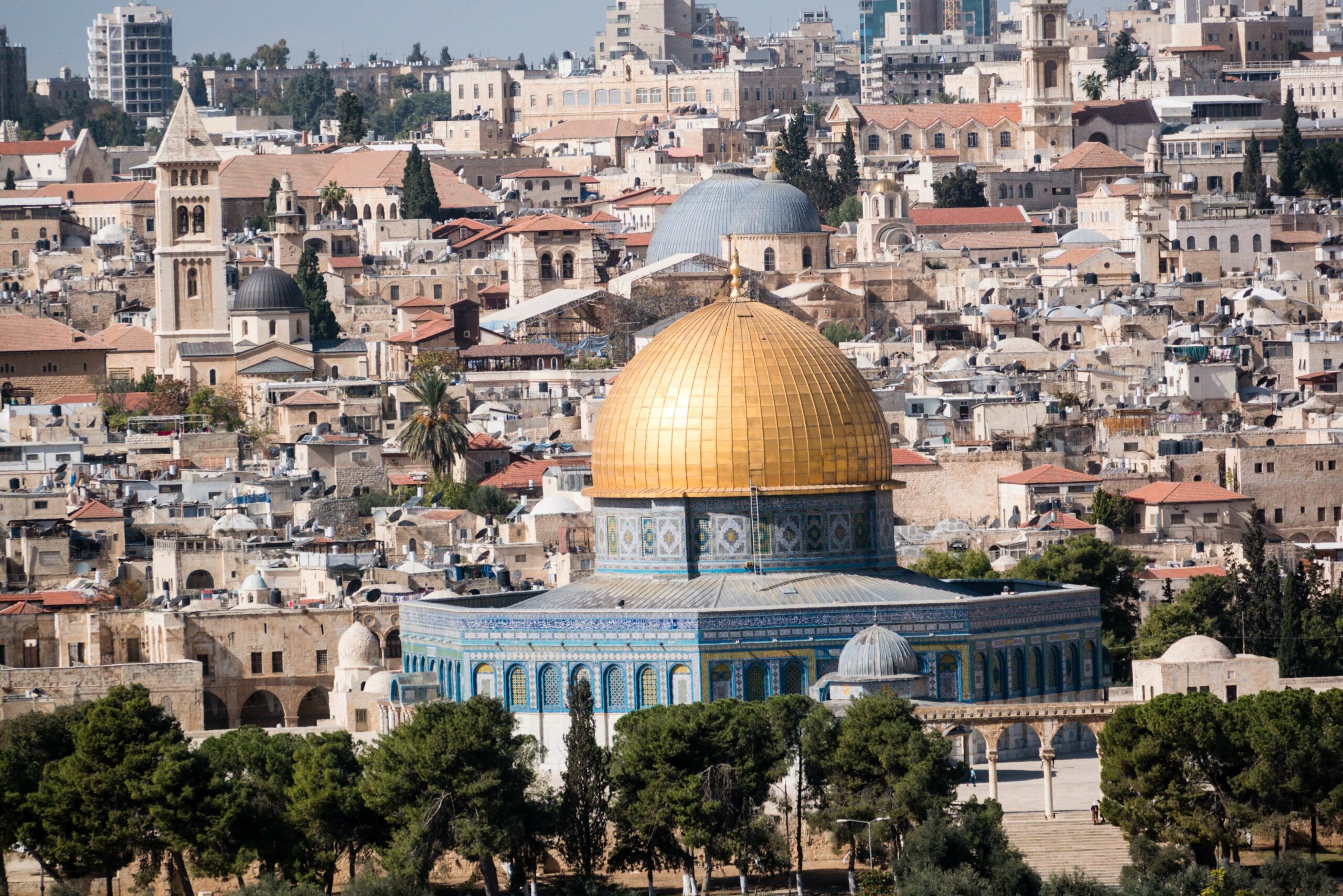If you’re lucky enough to be invited to a Palestinian wedding, you’re in for a true treat.
Palestinian weddings are giant affairs that usually involve the entire family and friend group.
You’ll also bear witness to the Palestinian wedding traditions rooted in rich history and culture.
9 Palestinian Wedding Traditions
Understanding Palestinian wedding traditions and rituals will help you know what you’re in for and also allow you to have the best time as an honored guest.
1. Henna Decoration
You’ll see a lot of decorative garb at Palestinian weddings, including plenty of henna decoration on the bride’s hands.
If you’re lucky, you might even be able to attend a women’s-only henna night right before the nuptials. Men are excluded from these celebrations, which generally involve tons of food, dancing, and plenty of bonding.
Henna nights are for adorning the bride with henna decorations on her hands and legs. These decorations are usually very intricate and last for several days. Although all of the patterns can vary, all of them are meaningful and very detailed.
You might even get some henna decorations of your own, depending on how close you are to the bride and her family. If you do, consider it a huge honor.
2. Traditional Tulbeh
Before the wedding, the groom’s family needs to request permission to go through with the ceremony from the bride’s family. This permission, referred to as “tulbeh,” is very standard practice even in more progressive Palestinian circles.
While some more traditional western cultures mandate that the groom needs to ask the bride’s parents for her hand in marriage, Tulbehs are family affairs. A trusted elder or distinguished member of the groom’s family is generally the one who does the asking.
Tulbehs are considered a massive sign of respect, and failing to go through with one can set married life off on the wrong foot.
3. Traditional Clothing
One of the key Palestinian wedding traditions and rituals is embracing traditional clothing for the ceremony.
So although you might see some brides wearing western-style white wedding dresses, it’s far more common for them to wear thobes. These conventional and historic Palestinian garments beautifully highlight their henna-adorned hands.
These thobes tend to be intricate and reflect the bride’s unique heritage. Each one is different, memorable, and a tribute to her region and family.
4. Family Sahra
If there’s one thing you can certainly expect from a Palestinian wedding, it’s the opportunity to eat all the delicious food.
The family sahra is one such custom. Sahras are part of the wedding festivities but independent of the ceremonies themselves. Instead, they usually happen right around the wedding and extend for several hours.
The family sahra happens after the traditional tulbeh and is a good way for different families to get to know each other over a fantastic meal. Like many aspects of a Palestinian wedding, if you’re lucky enough to go to the family sahra, you’re a treasured and respected guest.
5. Public Shaving
Although not very common in most urban areas, public shaving is still something that happens a lot in Palestinian villages. This ritual involves the groom and one of his closest friends, who shaves his face before the wedding.
It’s another way to get the family and friends involved in every aspect of the wedding and is a cherished tradition. While it can seem a little bit strange to people who have never seen one, it’s essential to view this tradition and other Palestinian wedding traditions with solemnity and respect.
6. Authentic Palestinian Feast
Make sure that you arrive at the wedding with an empty stomach. Palestinian weddings generally have more food than you can imagine, and nobody will leave without being stuffed to the gills.
Each wedding is unique, but you can generally expect hearty meat stews like mansaf, rice, tons of bread, lots of condiments, and yogurt. It’s good manners to try a little bit of everything. If you’re not sure if you’ll like it or not, take a little bit and get more if it appeals to your tastebuds.
7. Traditional Dabke Dance
Weddings are huge celebrations, and always include lots of dancing. The dabke dance is a traditional affair that involves all of the guests. So even if you’re not much of a dancer, prepare to be included.
In dakbe dances, all participants hold hands and do a series of intricate dance steps, including tapping and stomping. There are a lot of other movements, too, like jumps and twists.
Don’t worry if you don’t know the steps; just try your best and follow the leader. No matter if you’re a dabke expert or novice, you’re bound to have a great time.
8. Zaffe Wedding March
One of the most essential Palestinian wedding traditions and rituals, the zaffe wedding march is a massive affair with plenty of dancing, music, and singing. It’s a joyous way to celebrate the new couple; depending on the wedding you’re attending, you’ll see it happening at different points throughout the wedding day.
For example, some zaffes happen en route to the mosque or while bringing the groom’s family to the bride’s house. Of course, there’s tons of other music throughout the ceremony too. Zaffes are huge public affairs where people can send their well wishes to the happy couple.
Some guests might even be invited to participate in the zaffe. As with the dabke dance, don’t worry if you don’t know exactly what to expect or the lyrics of the songs. It’s all about honoring the bride and groom, and as long as you contribute to a joyful and celebratory atmosphere, you’re all set to go.
9. Celebratory Zaghareet
To be very clear, there’s no shortage of music and singing at Palestinian weddings, but the zaghareet might be the most incredible and unique aspect of them all.
To the uninitiated, it might seem like a strange, high-pitched sound that’s out of place in a solemn wedding. However, once you’re aware of what’s happening, you’ll know that it’s just another fun way to celebrate.
A zaghareet is a loud, piercing kind of whistle that women generally do. Since it requires a deft tongue movement between the teeth, don’t be surprised if you can’t duplicate the sound. Typically you’ll hear zaghareets ringing all throughout the town or village where people are getting married.
Frequently Asked Questions
It’s normal to have many questions about how to conduct yourself at a Palestinian wedding, especially if you’re a tourist. These frequently asked questions and answers will help you make the most of your time while paying proper respect.
What’s the proper dress code?
Dress to impress at a Palestinian wedding. Men are expected to wear tuxedos or very nice suits, and women should wear fancy dresses. Observing modesty customs is also vital, so avoiding anything too low-cut is always a great idea.
As with western weddings, it’s inappropriate to wear anything white. Brides may wear more western-style white dresses or traditional clothing, but you should leave your white clothes at home just in case. Also, bring a nice headscarf to wear to the mosque.
Are there any table manners I should adhere to?
Expect to eat a lot of food at the Palestinian wedding, but avoid using your left hand to do it. Palestinian people eat with their right hands only. So try to remember not to eat or serve food with your left hand. Passing plates with your left hand is another big no-no.
Depending on the type of wedding, you might also notice that Palestinian people use their hands to eat rather than utensils. If you feel comfortable eating with your hands, you can certainly follow their lead, but it’s not required.
You might enjoy your food in single servings or from a large communal dish.
How long do these weddings last?
Although the vow ceremonies are generally shorter, Palestinian weddings can last for a long time. So prepare to attend many festivities and settle in for a good, fun time.
You should also be ready to partake in some of the most cherished Palestinian wedding traditions and rituals while you’re there. So kick back and enjoy yourself to the fullest.
How can I be respectful in the mosque?
Most Palestinian weddings are highly religious, so if you find yourself in a mosque, it’s essential to show respect.
Dress modestly and remember that you’re entering into a place of worship. Women have to cover their heads. Bring a lovely headscarf that matches your outfit, and put it on before you go inside.
You should also remove your shoes in the mosque and avoid things like talking loudly or disturbing the ceremony. Although Palestinian weddings are fun, loud affairs, the mosque is a place of sanctity and worship, so treat it exactly how you would treat a church.
In addition to these basic etiquette rules, prepare to partake in some interesting and exciting traditions and rituals. Palestinian weddings are a proper window into the culture itself, and you will never forget your experience. So relax, soak in all of the festivities, and prepare for an epic, memorable, and very moving time.




